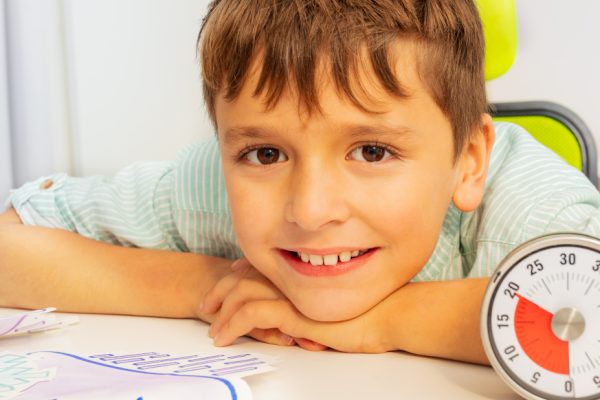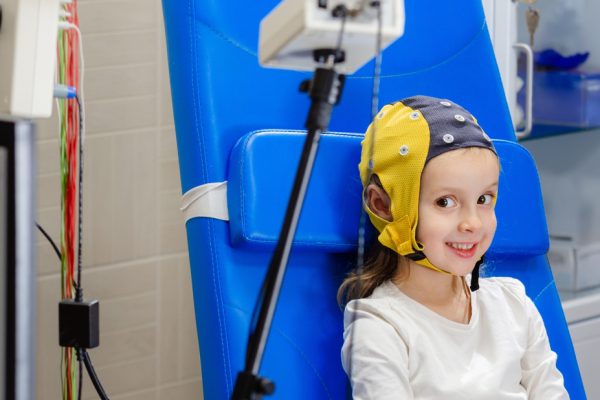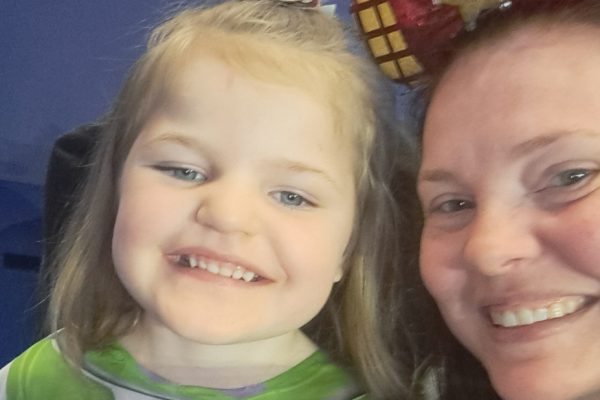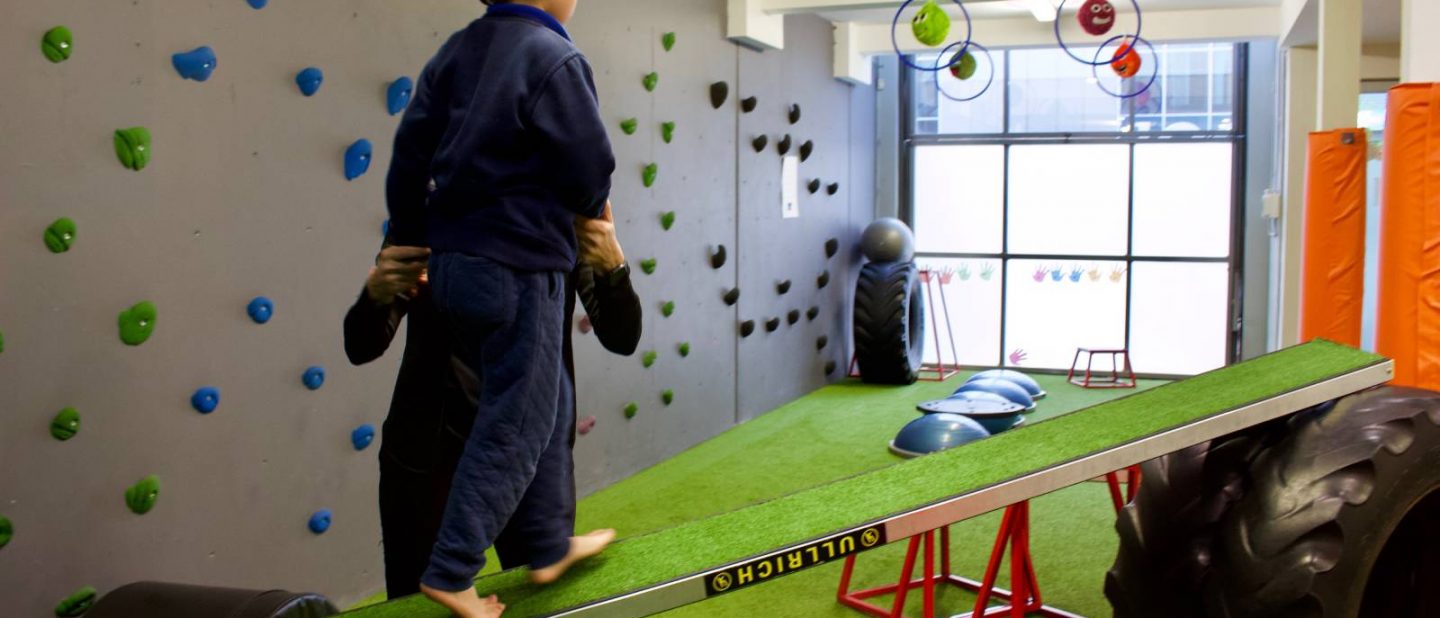
What is a neurodevelopmental program and how can it potentially support my child?
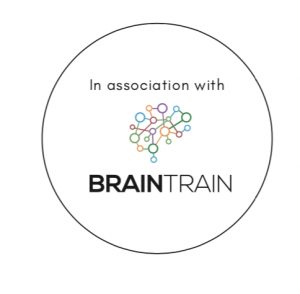
Autism Spectrum Disorder (ASD), ADHD, Sensory Processing Disorder and many other developmental challenges are often described as neurodevelopmental conditions – i.e one that is directly related to the development of the nervous system.
At its core, a neurodevelopmental program will evaluate and work to support children with these conditions and is generally focused on supporting and targeting the nervous system.
Treatment and therapy options for anyone with a neurodevelopmental condition are wide and varied. There are the traditional, well-known and evidence-based therapies such as OT, physio and speech therapy, and then there are an increasing number of options that are more recent in their developmental timeline and as a result may not be backed by a large body of scientific data despite numerous accounts of anecdotal evidence of their effectiveness.
One program that falls into the latter category, but one that we are starting to hear more about is neuro-developmental and sensory-motor therapy which targets the consolidation of reflexes throughout the body whilst improving the efficiency of neuro-motor and sensory-motor pathways.
We know that during infancy the brain and body are controlled by a set of primitive reflexes that help babies respond to stimuli in ways that both protect them and initiate exploration. In neurotypical development, with practice and over time, these primitive reflexes are suppressed as the frontal lobes of the brain develop and the child plans, accesses, and uses more efficient neuro-motor pathways.
In children and adults with atypical neurology however, these primitive reflexes may be retained or reappear.
Neurodevelopmental programs are built on the premise that retained reflexes impede the development of efficient neuro-motor and sensory pathways; that movement and sensory input are critical to efficient and optimal human brain development. And many of the symptoms and challenges presented by children with autism and other atypical neurology are at their core, a function of inefficient neural pathways.
Supporters of the approach believe that rather than developing typically, the brain of a child with autism is often so focused on preservation and survival through the fight or flight response that it impedes the typical suppression and integration of primitive reflexes through the neuro- developmental movement patterns and stages that a typically developing child would go through.
As a result, the autistic child may have non- integrated reflexes and inefficient neural pathways and neuro-motor connections which can impact all areas of their functioning and daily lives.
The aim of a neuro-developmental and sensory- motor therapy program is to integrate reflexes and develop a more efficient neuro-motor network, in an attempt to improve the brain-body connection.
This is often carried out through an OT-based approach but can border on physiotherapy in style, offering neuro-based movement, challenge and a whole heap of fun along the way.
One approved NDIS provider of this approach in Australia is Brain Train who have centres in Melbourne, Sydney and Brisbane.
Helping children with special needs to find their voice and to thrive in a world that really doesn’t make sense to them, is at the heart of Brain Train’s DNA.
The company was founded by Marietta and Justin Goddard and Paula Fabiani after researching and participating in the world’s best practice in neuro-developmental, occupational and play-based therapies for children with neuro-developmental challenges. Neuro-developmental therapy was a critical part of their daughter Chloe’s journey with autism, ADD, sensory processing disorder and dyspraxia and it paved the way for their holistic and functional ‘move, activate and integrate’ neuro- developmental program. They believe that it was the game changer that improved her health and happiness significantly and changed the trajectory of her life in a positive direction.
The Brain Train program consists of 28 sessions over the course of 14 weeks and can potentially help children with a number of conditions including:
Autism
Movement-based activities to help speech, anxiety, meltdowns/tantrums, social interactions, sensory issues and more. Emphasis on restoring health and optimising function, including the opportunity for play-based engagement to assist with communication and socialisation goals.

ADHD
A drug-free program to assist with focus, irritability, anxiety, learning and all areas of well-being.
Sensory Issues
The play-based activities develop the ability to cope with noisy/busy environments and manage change without becoming overwhelmed.
Neuro-developmental challenges
According to Brain Train the program integrates reflexes and builds efficient neural pathways and connections, so the brain and body start to work synchronously.
A number of facilitators on the Brain Train team (including their founders) have direct, family experience with autism and other developmental challenges. Their
mission is a personal one and they’ve created an environment based on the need to serve children and adults with neurological challenges and special needs in a caring and non-judgmental way.
Brain Train’s program is a lot of fun and helps build confidence and character as well as competence in many core skill areas. Whilst neuro-developmental style training can be very challenging neurologically, their facilitators are trained in play-based teaching models and invariably both children and adults are engaged and having fun but are really working quite hard.
If a child doesn’t develop automatic control over balance and motor skills, emotional behaviour and many aspects of learning can be affected, for example, vestibular processing, proprioception and visual perception collectively allow for balance and coordination and subsequent behaviour and learning.
Brain Train’s program provides a unique environment for children to engage in foundational, transitional and functional movement. Sessions consist of specific activities that encourage the body to coordinate bilateral movements, execute midline crossing and master movements that require balance and gravitational control.
As an NDIS provider some of the goals Brain Train targets include:
• Improve independence (eg. self-care tasks such as bathing, dressing and going to the toilet)
• Enhance gross motor skills (eg. walking, running, catching and throwing for improved participation in outdoor activities and/or sport)
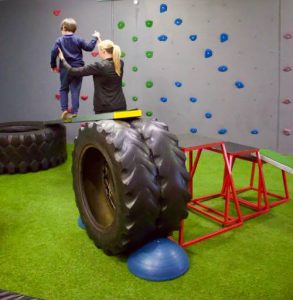

• Enhance fine motor skills (eg. improved pencil grip for handwriting and drawing, using cutlery, and tying shoelaces)
• Develop social skills for improved social
interactions at home and the wider community
(eg. improved engagement with and awareness of
others, and greater focus and coordination
for play)
The Mortons are one family who have taken their two autistic children through the Brain Train program and report significant results. According to mum, Danielle before attending the Brain Train facility in NSW her children couldn’t interact with peers, play on their own, or even continue play they instigated, nor could they regulate their emotions and reactions to their environment.
Danielle says that Brain Train has given them independent play, social play between siblings, role play with dolls and cars as well as an ability to sit/ lay still to talk and cuddle. Not to mention the social peer interaction.
She adds that “the co-ordination both our children have gained sees them confident in climbing play equipment, setting up obstacle courses and for us as parents – the fact they now go off and play at a park is life changing. There are no more 2.5 hour meltdowns, now I watch in awe and with love for a child that is becoming a calmer part of her world.”
If you want to know more about the Brain Train Co and their services visit www.thebraintrainco.com/ or call 1300 209 634





